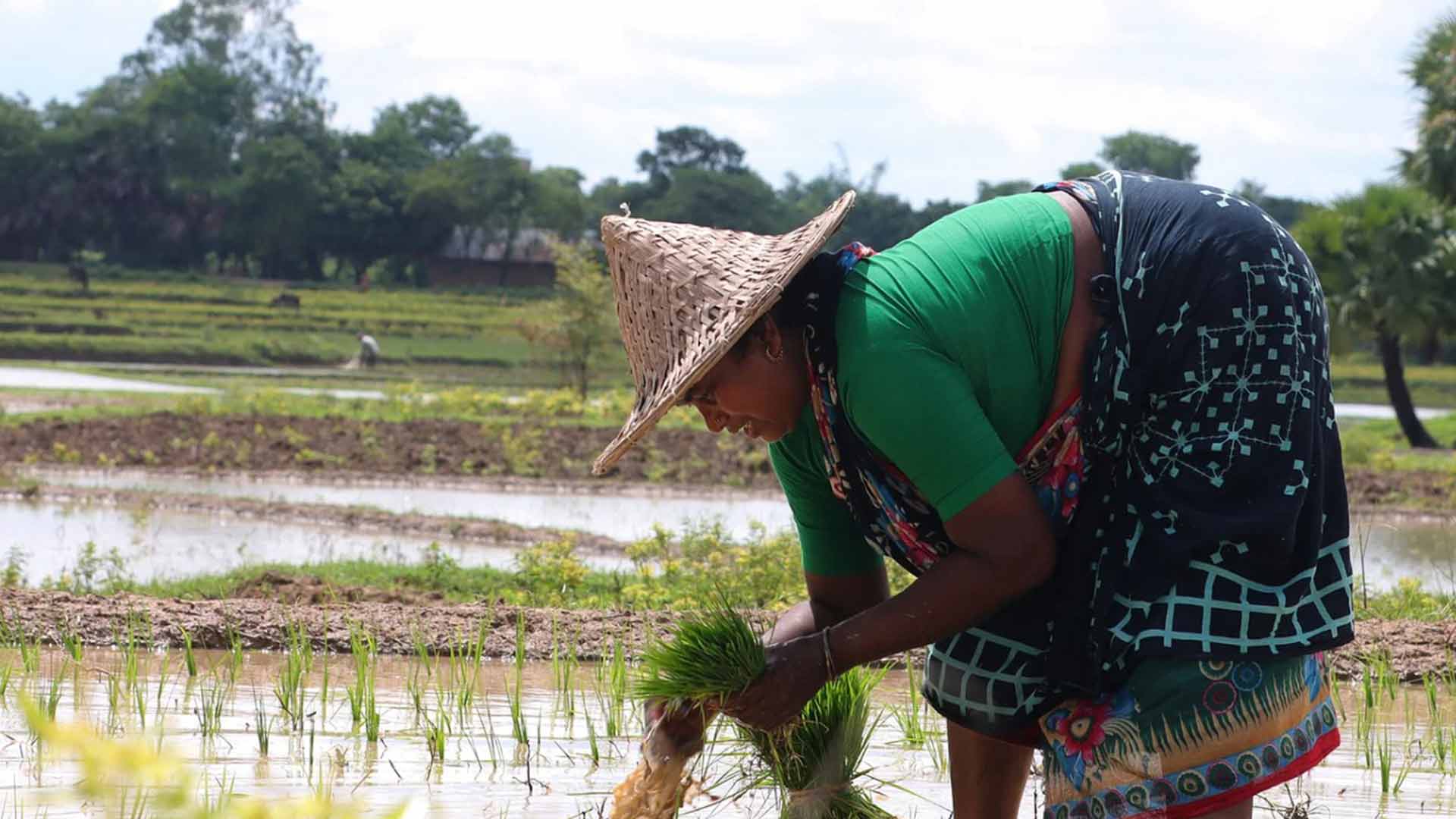Traditionally, rural Bengali women were restricted to the realm of the home, where they were responsible for running houses and caring for their families. It appeared impossible to disprove the stereotype that the fields of agriculture and road construction were solely the purview of men. Nevertheless, these ladies saw possibilities where others saw roadblocks.
In the heart of rural Bengal, agriculture has always been the backbone of the economy. Where lush green fields stretch as far as the eye can see and the rhythmic sounds of nature play their daily symphony, a silent revolution is taking place. Here, amidst the serene landscapes and close-knit communities, women emerge as the unsung heroes, shattering gender stereotypes with their unwavering commitment to agriculture and road construction.
However, for years, it was predominantly perceived as a male pursuit. The notion that farming required physical strength and endurance created a barrier for women. But as times changed, so did the perception of women’s roles in agriculture.
Today, you’ll find women across rural Bengal actively involved in farming. From planting seeds to harvesting crops, they are redefining the narrative. By embracing modern farming techniques and sustainable practices, these women are boosting agricultural yields, ensuring food security for their communities, and even venturing into entrepreneurship by selling their produce in local markets. By doing so, they are elevating the overall quality of life in their villages.
Meet Shreya Mondal, She is a prime example from a rural area of North Bengal. With determination in her eyes and seeds in her hands, she defied societal norms to become a successful farmer. Shreya embraced modern farming practices, from crop rotation to organic farming, and now her thriving farm is a testament to her dedication and the potential of women in agriculture. With modern techniques, organic practices, and unwavering dedication, Shreya turned her family’s small farm into a flourishing example of sustainable agriculture.
“Muslima,” residing in a remote village in Magura, is leading the charge. She saw the potential for growth in vegetable cultivation and took it upon herself to make a difference. Today, her thriving vegetable farm supplies fresh produce to her community and local markets. Muslima’s story showcases the transformative power of women in agriculture. Where vegetables are a staple of every meal, women have traditionally played pivotal roles in household gardens. But now they are venturing into larger-scale vegetable cultivation, challenging the notion that it’s solely a man’s endeavor. Her story is a testament to the potential of women in the field.
In the realm of road construction, rural Bengal is witnessing a revolution led by these women. Roads are the lifelines of rural communities, connecting them to opportunities beyond their villages. These women, once confined to the periphery, are now at the center of infrastructure development.
Behind the wheels of bulldozers and on the frontlines of construction sites, they are transforming dirt roads into paved highways. Their presence in road construction is not just about breaking ground; it’s about breaking stereotypes. They have proven that they are as capable of managing heavy machinery and directing construction projects as anyone else. Breaking the stereotype that heavy machinery operation is a man’s job, these women have demonstrated their ability and prowess in this field. They are proving that gender has no bearing on their capabilities, and with tenacity and skill, they are crafting roads that connect communities and catalyze development.
“Rina Begum”, a determined woman from the small village of Gaibandha district, is a pioneer in road construction. She operates heavy machinery, leads teams, and ensures projects are completed on time. Rina’s dedication and skill have paved the way for other women to follow in her footsteps. She is proof that women can excel in roles traditionally reserved for men.
Beyond their achievements, these rural women are empowering entire communities. By excelling in fields that were once the exclusive domain of men, they are motivating young girls to aspire beyond boundaries and challenge ingrained societal norms.
Participation in self-help groups and cooperatives is common among these women. These associations offer financial independence and access to resources, enabling them to invest in education, healthcare, and infrastructure.
We honor these rural warriors and their extraordinary journeys. Their stories remind us that gender should never be a limitation to pursuing one’s dreams and making a positive impact on society. Let us also acknowledge the potential of every woman in rural Bengal. Their journeys serve as powerful reminders that, when provided with equal opportunities and support, women can dismantle barriers and forge a path toward a more inclusive and equitable future for all. As we celebrate the stories of these unsung heroes, we acknowledge their unyielding spirit. They are not just working the land and constructing roads; they are building a bridge to a future where gender is not a determinant of opportunity. The journey of these rural warriors is an inspiration.

